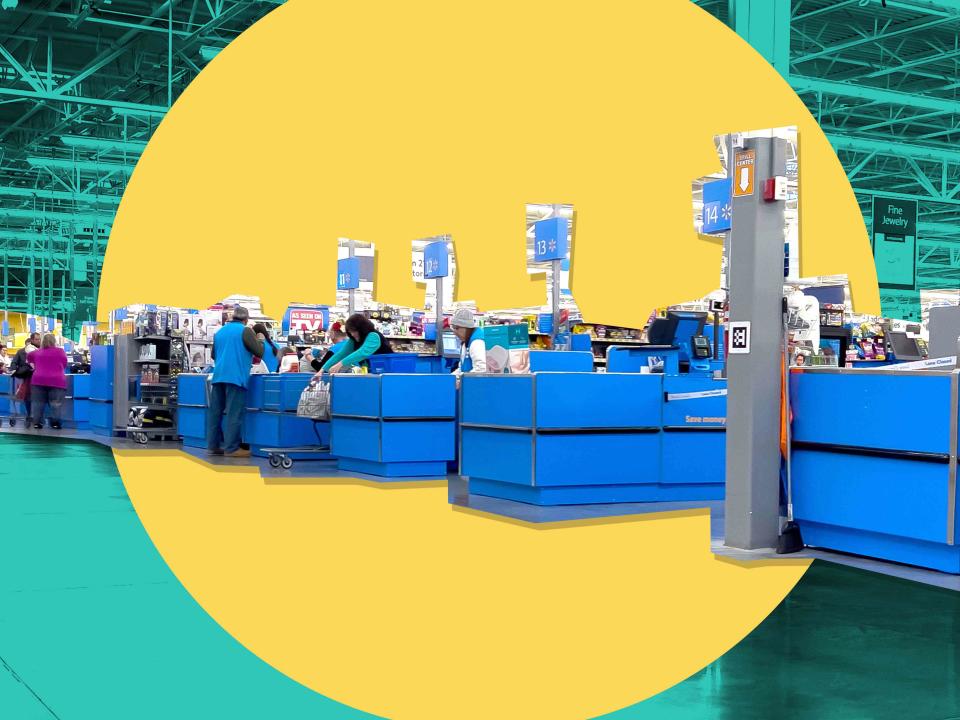Why You Might See A New Charge On Your Walmart Receipt
A new "bottle bill" expansion is on the horizon.

Adobe Stock/Allrecipes
There is no doubt we can all do more to aid conservation efforts for our planet. With recent droughts, agricultural hurdles, and wildfires, new efforts are being put in place to help save our precious Earth however we can. One of the easiest ways, outside of your kitchen, is to reduce plastics and encourage more recycling. Some states and cities have already banned single-use plastic bags in their jurisdictions, but an older effort has been around for decades...And that is enacting legislation known as the "bottle bill."
What Is the "Bottle Bill?"
According to the "Bottle Bill Resource Guide," a bottle bill is a deposit container law. This law is essentially a refundable deposit on beverage containers to make sure there is more recycling and/or reuse. This process is a financial incentive between a consumer, retailer, and distributor. A retailer will pay their distributor a fee for each bottled beverage. In turn, the retailer will charge a consumer a deposit that the consumer can actually get back if they return the container to a retailer or redemption center. The deposits usually run from 5 to 15 cents.
Currently, 10 states (California, Connecticut, Hawaii, Iowa, Maine, Massachusetts, Michigan, New York, Oregon, and Vermont) in the United States have their version of a bottle bill. The bill applies to beer, spirits, and soda. However, expansion of this bill is now on the horizon.
What Are the New Bottle Deposit Charges?
The state of Vermont is voting to expand its bottle bill by adding bottled water, juice, sports drinks, and wine. Milk, other bottled dairy products, meal replacement drinks, and baby formula are not included in this expansion.
Retailers like Walmart and Target have already enacted this program under the current bottle bill terms, and if this new bill passes in Vermont, customers can see new charges on their receipts for the expansion as well. With the new categories being added, this could be a surprise to customers.
Ten states may have this in place but many could follow suit in the coming years due to an uptick in pollution awareness. The new bill expansion is expected to be enacted in Vermont in 2027.

